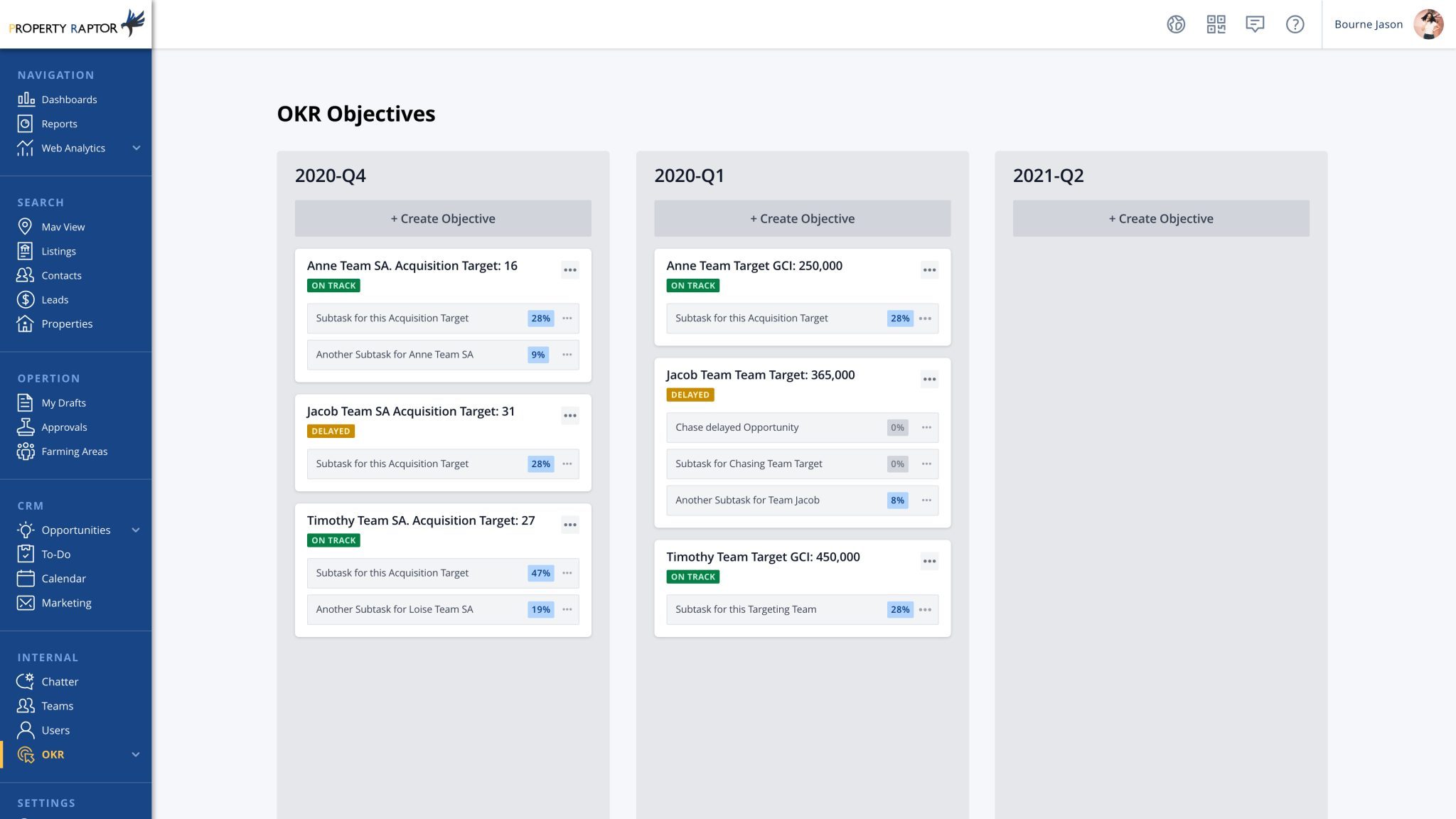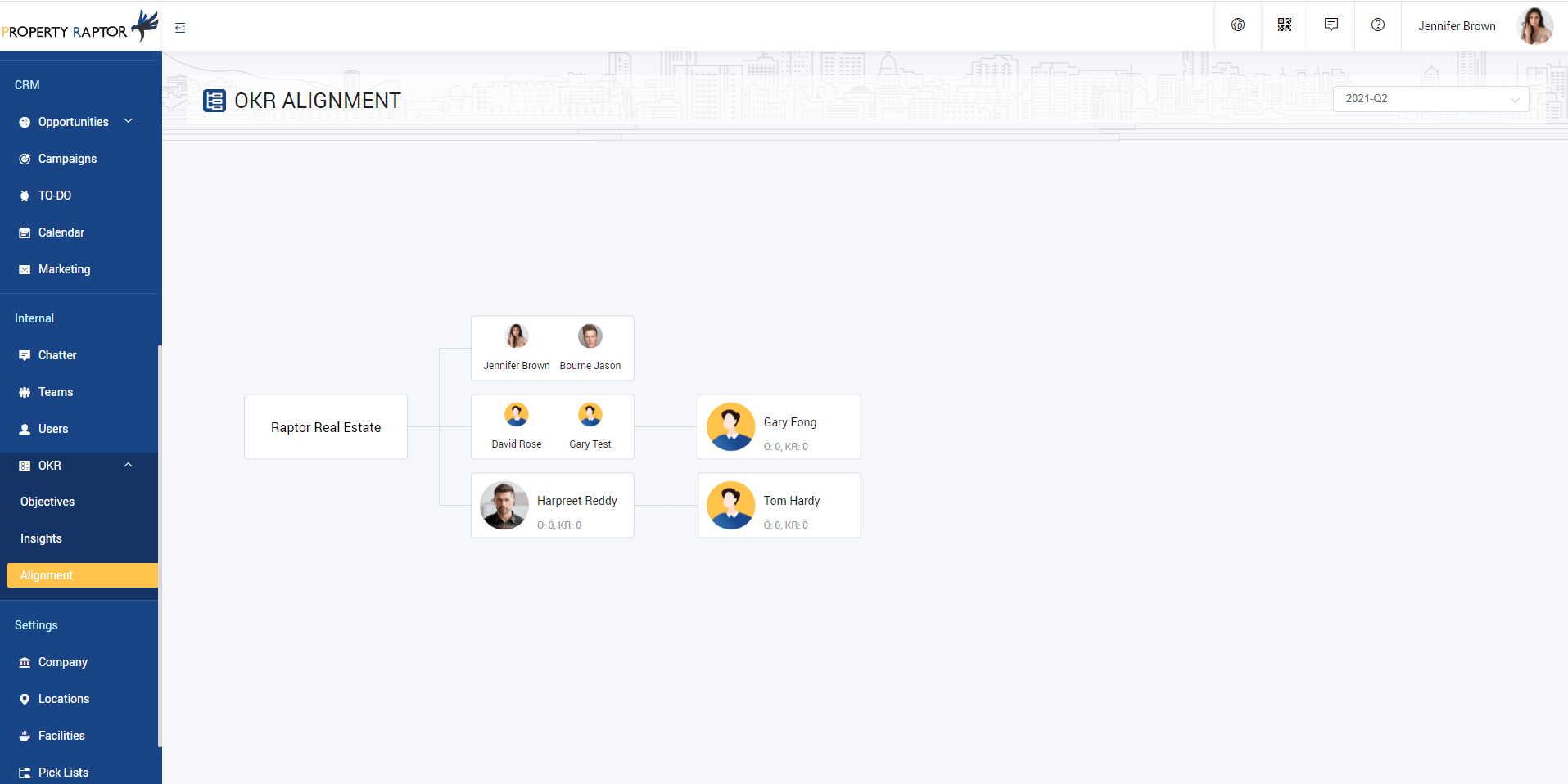The onset of the COVID-19 pandemic has led to knock-on effects in the real estate industry. With open houses and meet-and-greets put on hold, and many finding themselves working from home, some managers continue to struggle with adapting to new methods of supervision in the new norm. Without adequate precautions, cracks in communication can lead to risks in your business.
As we drastically shift to more decentralized forms of collaboration, it becomes increasingly important to keep all employees aligned with your organization‘s goals. In a recent study by KPMG on COVID-19 response strategy, 89% of HR executives believe that corporate purpose and values played a critical role, and 75% of CEOs have adjusted management styles to nurture company culture in a remote-working environment.
This new reality means companies, especially in the real estate industry, need to emphasize the synchronization of core business values, targets, or Objectives and Key Results (OKRs) as they pivot through these unprecedented times.
What are OKRs?
The referral of “Objectives and Key Results“ is a goal-setting framework that helps you define goals and outline key performance indicators (KPIs) strategically to track the progress of your organization’s success. It combines prioritizing aspirations with measurable and time–bound indicators to guide stakeholders at every level to achieve better results.
Objectives are what your company wants to accomplish within a given timeframe. These are simple statements that are action-oriented and aspirational.
Key Results are the actions your team will take to achieve those objectives. These need to be specific, measurable, and trackable.
OKRs help to lay out the parameters in reaching a goal, so employees can know their priorities and focus on specific actions that lead to better performance. When working remotely, setting clear goals is especially vital to boost productivity and motivation within a team. Read on to learn three reasons how OKR-driven cultures can benefit the real estate sector and stay resilient in a global pandemic.

1. Team alignment and transparency
It is likely that your organization already has a clear direction on what needs to be achieved. Still, with multiple teams taking part in many projects simultaneously, it is easy to lose sight of these intentions and how various campaigns can affect the broader company. As you move from top-level management to employees, managers can have their preferred approach leading to miscommunication and target misalignment over time.
Defining OKRs can help articulate goals and align execution strategies, ensuring focus on immediate tasks while keeping the bigger picture in mind. By listing out measurable indicators, managers can assign responsibilities to employees and draw clear divisions of labor, outlining priorities to make sure no item is left forgotten.
The transparent nature of OKRs allows employees to leave out any second-guessing and dive straight into productive work. Whether the goal is to generate more leads or close more deals, all members of your team will know exactly what they need to do to get there.
2. Self-driven workforce
The OKR framework helps to create a cultural shift from focusing on outputs to outcomes. Using key results to drive accountability can help employees realize their role‘s contribution and encourage self-awareness by identifying their strengths and weaknesses. Learning time––bound goals will inspire them to communicate with supervisors frequently to exchange knowledge, ideas, and observations, cultivating ownership and self-improvement while increasing collaboration.
Since progress can be tracked, managers can also verify work and monitor individual performance without micromanaging, building trust between leaders and employees and avoid a disengaged workforce.

3. Achieve better performance
When people are engaged for a purpose in unison, performance goes up. Research shows that groups of employees who use OKRs are much more effective in delivering outcomes than groups who do not – they perform better and generate more sales. Many big-named corporations have credited OKRs as a part of their success, such as Google, Amazon, Twitter, and Spotify – to name a few. There is less friction between teammates when all members are striving towards a common goal, and naturally, productivity will grow exponentially.
In a rapidly changing business climate, leveraging OKR techniques will help your organization adapt to challenges faster than competitors. Stay agile and resilient by giving individual contributors the freedom to problem-solve while maintaining a concise view of the target. Having a clear system of tasks and consistent monitoring of outcomes will help you progress towards the objective more efficiently and effectively.
Make OKRs work for your real estate business
So how should you approach OKRs? To ensure your efforts are stretched to their fullest potential, the best practice is to use an OKR software to help support your real estate business. All measures can be located in one centralized place, from objective alignment and task allocation to progress tracking. Property Raptor‘s fully integrated OKR function can help you visualize your goals and track your team‘s progress at-a-glance.
By providing a 360-degree view of all task progress, you can easily monitor operations across different departments or geographies in real-time. View task completion percentages and uncover insights on what needs to be improved. You can also check in on your team by managing the hierarchical alignment from the top-down to well equipped to achieve your organization‘s ambitious goals.
Start adopting an OKR-driven culture with software that helps you execute your strategy. Contact Property Raptor to find out how we can help your team achieve success.





